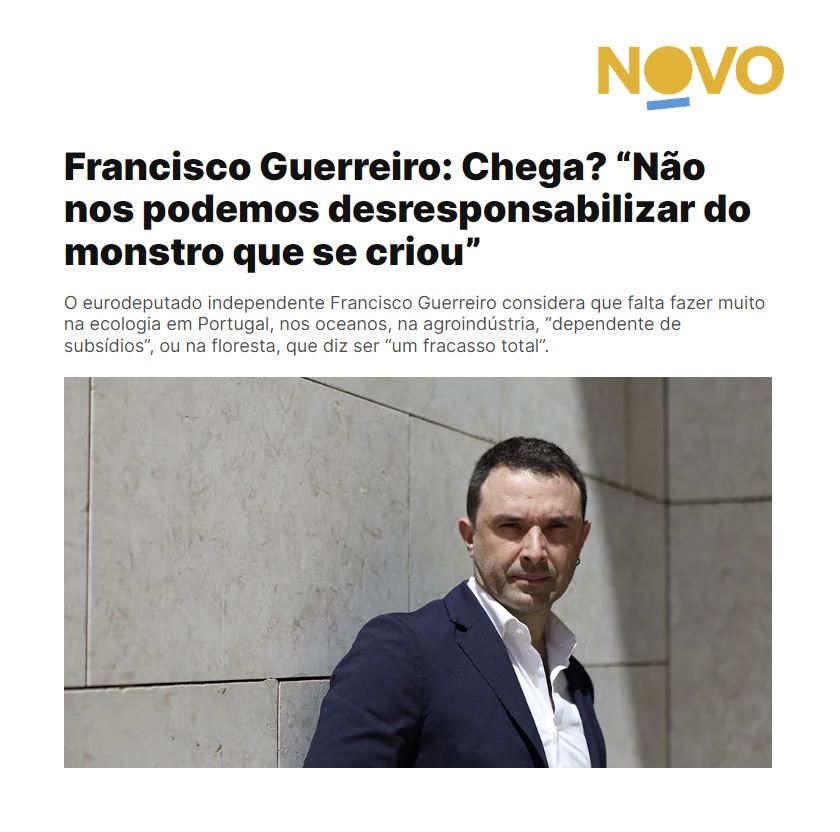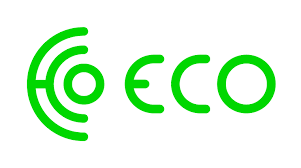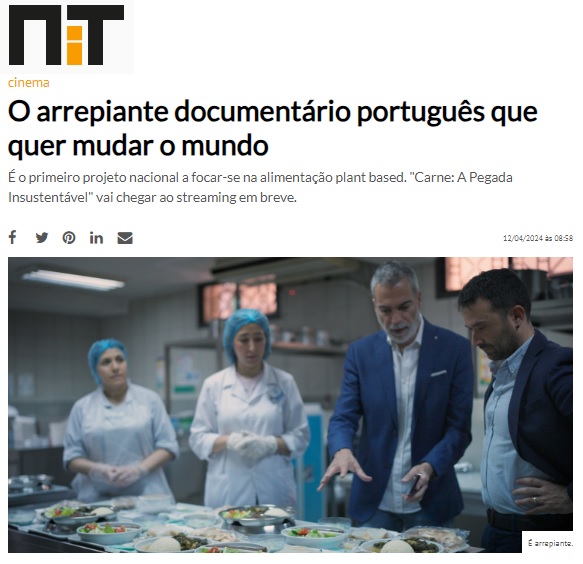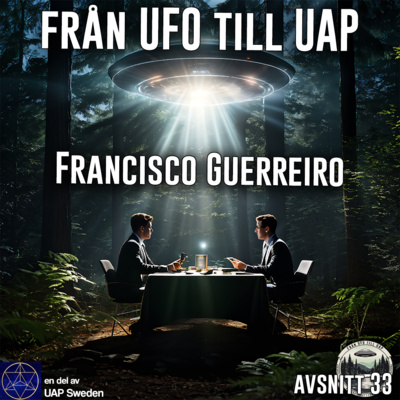Sentinel News: 'MEP Guerreiro on UAP : The institutions, especially the military, have clear evidence that they exist'
February 27, Member of the European Parliament Francisco Guerreiro talked with Sentinel News regarding the speech he gave on Unidentified Anomalous Phenomena during the Plenary session on February 5.
As reported first by Sentinel News, MEP Guerreiro spoke on UAP in the European Parliament Plenary session, advising the European Commission to harmonize UAP reporting and data collecting mechanisms.
During the interview with Sentinel News, he explained that he “would not jump to any conclusions for what these UAP may be” :
I would just say that there is a growing evidence of understanding that we don't really know some phenomena that happens in our space, in our civil aviation, and also the seas. And that's why I think we should have a very scientific approach on this topic, also, not entering the noise that sometimes happen with this kind of topic.
Regarding such evidence of UAP, he added:
The institutions, especially the military, have clear evidence that they exist, there are footages and, some information is not even available.
Regarding how the European Union deals with UAP, MEP Guerreiro stated: As far as I know, I'm the first member of the European Parliament to raise the question. And I formulated three questions to the Commission regarding this subject.
As to why he talked openly about it, he stated:
I think the first door was open, it was to publicly debate the subject inside the European Parliament. So the EU institutions now have a member, an entity that is talking about the subject so this, in my perspective, decreases the anxiety or the skepticism, of some citizens or entities regarding the subject.
He further added:
There isn’t a debate on this topic, probably, and I would assume that it is because of the stigma associated with it.
I do know from several meetings that I had with institutions and with citizens and professionals, also from other sectors of society, that this is a concern to some. But there's always a fear of repercussions. There's always some kind of associated stigma.
I've been talking to a lot of people that are involved in this topic, and they are very credible.
I know that some MEPs are curious, have more questions, but for now, due to the circumstances, they are not willing to come forward and to have this debate.“
According to MEP Guerreiro, one of the main problems the UAP topic is facing is that “collecting the data is also not harmonized here in the European Union”:
We are not a Federation. And so each member state - for example, if you look through the lens of the military, receives the data and each one manages the data as they wish. There's like a cooperation through the military lens, but we don't have a federal army, so to say. So we do have cooperation between member states, we are also integrated in NATO. But there's not a clear cooperation here about UAPs.
There's a regulation (EU) No 376/201’ that already talks about the collecting of the data. But there's no data on UAPs. Or if there is, it's so small that it doesn’t come up as a problem in security, for example. But again, this is kind of contradictory, with what some pilots already talked about, because they reported some events. I think there's a gap within the reporting.
One of the most interesting arguments made by MEP Guerreiro regarded the democratic aspect of the UAP debate:
If you look through a democratic lens, if this is a human made technology, this poses deep questions on how this technology is being used, if it's mainly to military, if it's to surveillance, if it's to other objective, and not to really focus on the challenge that we have, as a society for fighting climate change, find the new sorts of energy that are cleaner, helping build a society that reduces inequality that is more democratic, that has the principles and values of transparency, embedded on the political groups that link the political institutions.
Regarding the political risk he faces by dealing publicly with UAP, MEP Guerreiro noted:
I think if you are a politician, and you are not courageous enough to defend your positions, you should not have them in the first place. And so I would have this position, even if I was running again.
I would prefer to have just one vote of a citizen that really supports the ideas, the problem, the path that I'm taking.
About the way European citizens could support a UAP law, he explained:
Every time a law is being made by the European Commission, you have a period where citizens, NGOs, institutions, companies and everyone who is interested, can comment on that. For example, I noticed that in the European Space Law, there was a group that talks about UAPs - the UAP coalition of the Netherlands.
This is also backtracked, because we are very transparent - we can improve, obviously - but we have a good tracking system on the legislation. And so we kind of saw that there was one comment of this institution regarding European Space Law.
Then you can have meetings with MEPs you can talk to, as well as with representatives of the European Commission, but I would say that the easiest things for you is to contact the members of the Parliament - if you have like a group for example, I'm from the greens but you can be like liberal or social democrat or conservative or whatever, and talk with those that you feel more inclined to, and question them. If they are doing something, if they are interested in your topic, you can try to make bridges. You can also make bridges between institutions that already talked about these topics and the MEPs. There are a lot of paths that the citizens can have to further improve the debates surrounding this topic.
The interview concluded on the different possible origins of UAPs and their sociological implications:
Let's assume, because we are jumping into some conclusions. So let me be clear, let's assume that this is something that is non-human, this opens the door for the rethinking of the entire humanity and our role in the universe.
The considerations that we might have, is if these technologies were somehow recovered, and there's been some reverse engineering, and they are being tested by some governments, I think that poses a moral and national approach, because especially in those countries, citizens were lied to.
If we are possibly understanding that we are not alone in the world, it seems very, very irrational to hide that information from the public.
And I think we citizens should have clear debates on what the role of humanity is in the world. I feel that from this topic, and every topic, citizens should be included.
I think this is an upgrade of our perception of even democratic institutions, transparency, and the scientific method. Then again, for me, this is a very scientific approach. This can, in the end, be just a smoking gun with a lot of evidence going one way - or nothing. As it seems, according to professionals, there is something. How far the rabbit hole goes, we don't know. That's why we need more data, more science, more public debates, to really keep it as scientific and factually based as possible.
Translated from French by Guillaume Fournier Airaud and Kate
This work is licensed under CC BY-NC-ND 4.0
Lê a notícia em Inglês aqui, Italiano aqui, Espanho aqui e Francês aqui










O Novo: 'Francisco Guerreiro: Os agricultores estão a ser instrumentalizados e, muitas vezes, pela extrema-direita'
Quarta-feira, 24 de Abril de 2024
LER MAIS